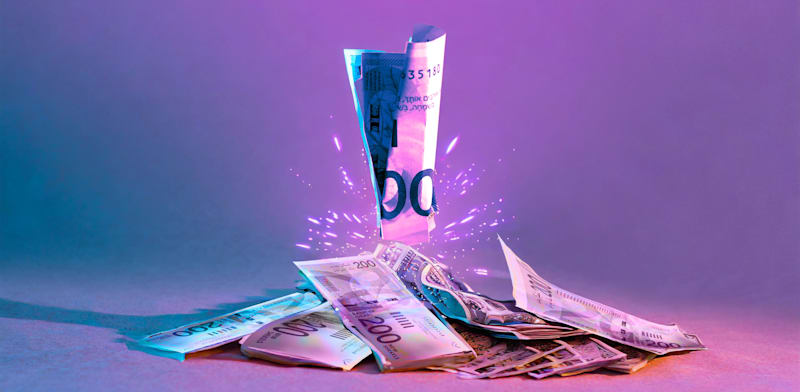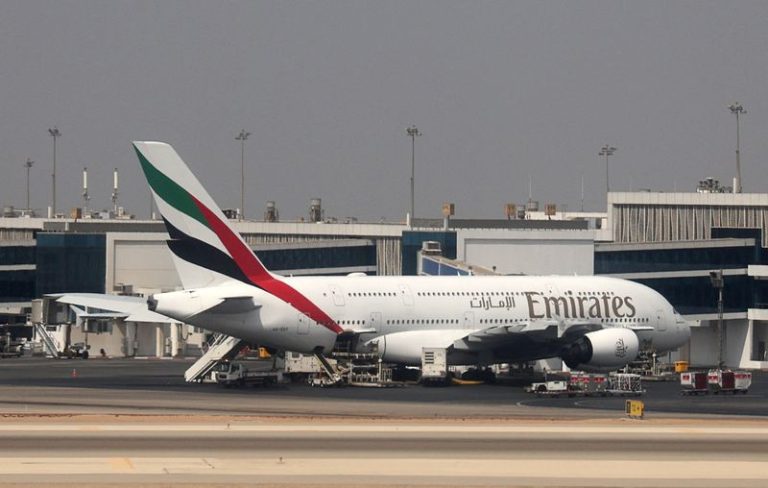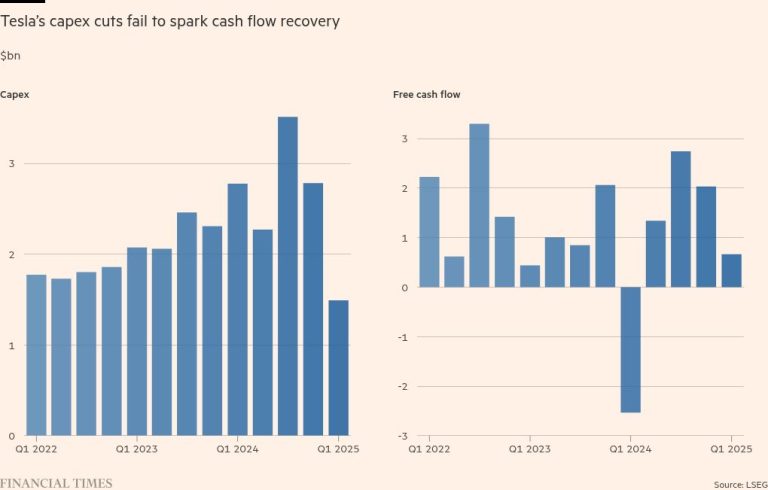
The shekel, which has appreciated sharply in recent weeks continues to strengthen this morning. In late morning inter-bank trading the shekel is 0.30% lower against the dollar at NIS 3.304/$ – the shekel’s strongest against the US currency since April 2022, and 0.18% lower against the euro at NIS 3.872/€.
Why is the shekel strengthening?
Mizrahi Tefahot Bank chief markets economist Ronen Menachem explains that the main reason behind the strengthening of the shekel is domestic and corresponds with the sharp gains in stock markets with bond markets also rising. He says, “This reflects the decline in the risk premium that the Bank of Israel stressed in its interest rate decision, and currently outweighs the general uncertainty that the Bank of Israel also emphasized.
He adds, “It should also be remembered that the fact that the Bank of Israel did not cut interest rates this month, and its forecast and the governor’s press briefing maintained caution and continued data-dependent policy, supports the shekel. The shekel is also appreciating against the euro, where interest rates have been halved in the past year, so the interest rate differentials also play in favor of the shekel.”
Vertical hedge fund senior analyst Evyatar Ben David agrees with Menachem and believes there are three main factors that may support continued strengthening of the shekel. He says, “The first, and most significant of all, is the continued rise in financial markets. The second is the continued weakness of the dollar in the global arena, and thirdly interest rate cuts by the US Fed, which will be driven mainly by a slowdown in inflation and not necessarily as a result of a recession. In the short term, it should be noted that July is one of the most positive months of the year seasonally. Continued increases in the US stock markets may lead Israeli institutional entities to continue hedging their investments overseas – a move that also supports the strengthening of the shekel. “
In this context, Ben David mentions that the rate of exposure of institutional entities to foreign exchange has increased in recent years, among other things due to the judicial reform and regional geopolitical changes. “The decline in the economy’s risk premium in recent times may lead institutional entities to reduce the rate of exposure to foreign exchange to historic levels and bring their capital back to Israel.”
In addition, he notes that trading volumes tend to be lower in the summer months, which increases the volatility of currency rates. “Therefore, any movement in the dollar exchange rate in the world, if the weakening trend continues, may be more severe than usual and also contribute to the strengthening of the shekel.
Finally, he says, “As the market prices a more aggressive interest rate path from the Federal Reserve, this may narrow the interest rate gap between Israel and the US and provide the shekel with additional support.”
Will the shekel reach NIS 3/$
Menachem recalls that the last time rate approached NIS 3/$ was in late 2021. the Bank of Israel came out with a plan to purchase up to $30 billion for its reserves and made it clear that it had identified an overvaluation of the currency. “It worked quite quickly, and the shekel weakened quickly and sharply. The Bank of Israel did not need to purchase the entire quota,” he explained.
At the same time, he stresses that it is difficult to know what will happen this time, whether the Bank of Israel will intervene, in what scope and format, and what the rate that will constitute the trigger will be. “There is still something like 6% today, among other things, left before reaching the rate that was the trigger then. We must also remember that the previous time the dollar was strengthening in the world, while now it is weakening. In other words, back then, the strengthening of the shekel against the dollar was even more unusual. Still, it is likely that if and as the shekel continues to strengthen, the chance of such intervention increases. The Bank of Israel is also thinking about the economy and is aware of the implications for exports, especially at times when there are various threats from foreign trade.”
Finally, Menachem concludes, “In my opinion, the current cautious course of the shekel will be halted at a sufficient distance from a rate of NIS/$, and it seems to me that if the Bank of Israel wants to intervene, purchasing forex reserves would be a preferable option to cutting the interest rate. “A combined move and/or an unusual interest rate announcement cannot be ruled out, but is less likely at the moment.”
Published by Globes, Israel business news – en.globes.co.il – on July 10, 2025.
© Copyright of Globes Publisher Itonut (1983) Ltd., 2025.







